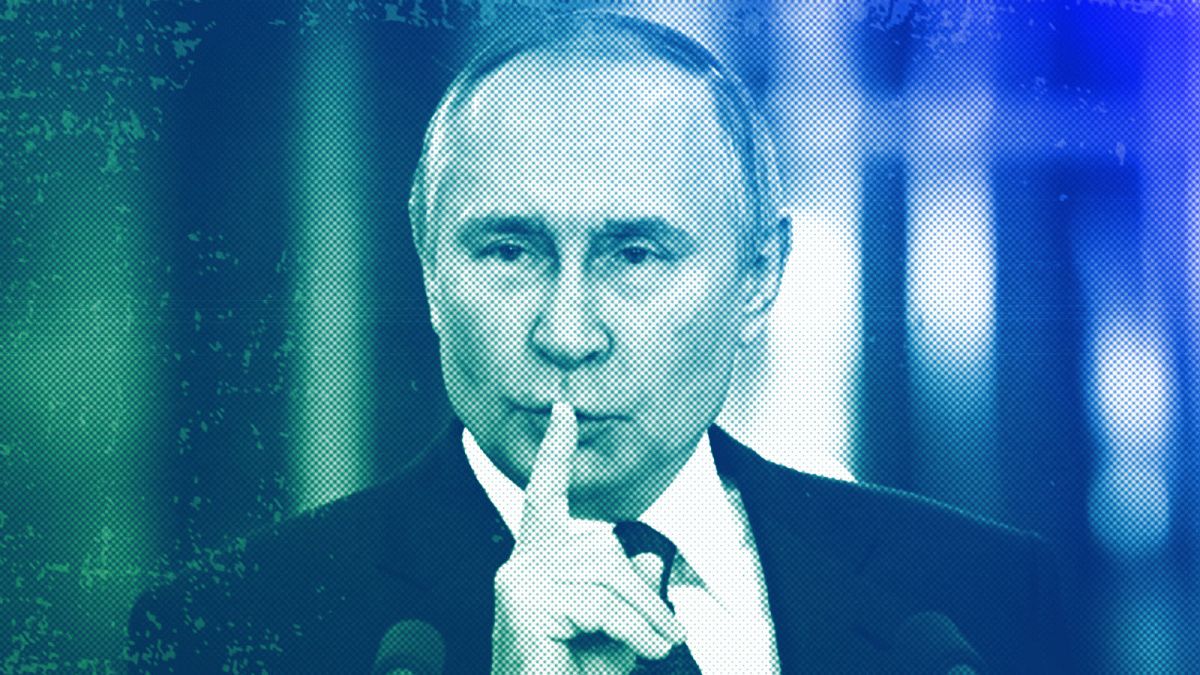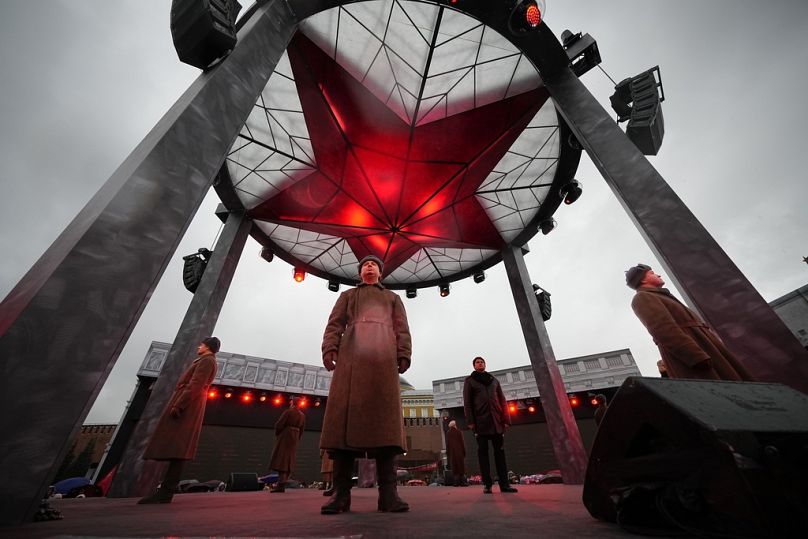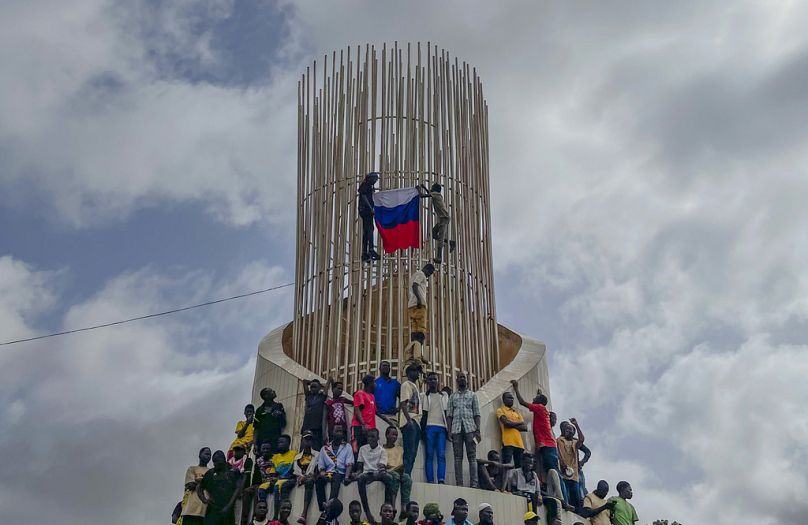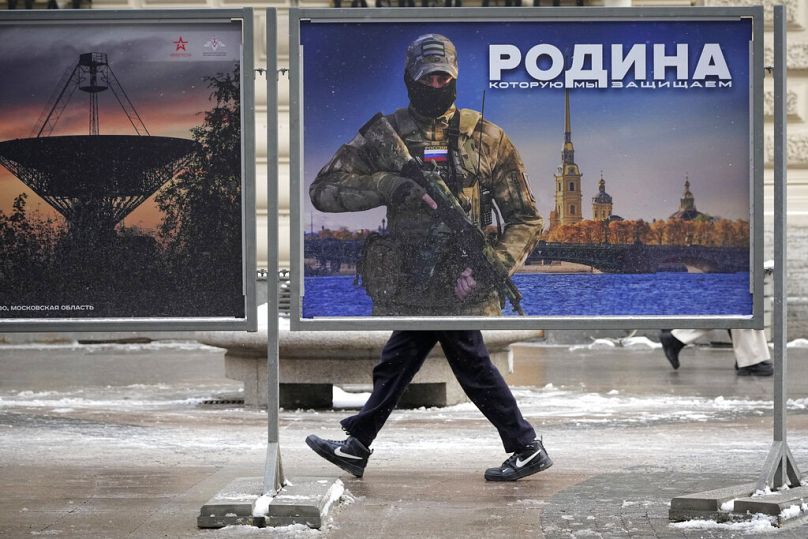Russia has always been one of the largest European colonial powers. Yet, its current leaders are engaging in the historical game of geopolitical opportunism that has been a recurring theme in the nation's grand strategy, Maxim Trudolyubov writes.
The ongoing Russian aggression against Ukraine in Europe’s eastern fringes, Hamas’ brutal assault on Israel and the ensuing war, and the intermittent clashes between Iran’s proxies and Western forces in the Red Sea beg the question: will these conflicts result in victory, and if so, who will come out on top?
In the West, Ukraine, and even Russia, the anticipation of a victorious outcome is tied to the prevailing understanding of the twentieth century as a master narrative for the future — as a go-to history, which helps to grapple with war and conflict.
This narrative boils down to defeating one evil in 1945 and another in 1989-1990.
The story of the defeat of evil
In 1945, Germany’s defeat was total. The unconditional victory of the anti-Hitler coalition, which included the United States, the Soviet Union, and China, alongside numerous other countries, followed by initiatives like the Marshall Plan and efforts to prevent new wars, laid the groundwork for the postwar West as well as the postwar Soviet Union.
There was a unanimous agreement on the severity of Nazi crimes, fostering a shared set of values enshrined in the Universal Declaration of Human Rights, allowing people from diverse cultures to find common ground. It paved the way for the creation of the State of Israel — a protected home for the victims of Nazism.
Four decades later, a world divided by the Cold War found unity again. The fall of the Berlin Wall accompanied by a wave of velvet revolutions that witnessed the collapse of communist regimes in Czechoslovakia, Hungary, Poland, and other Eastern Bloc nations, marked the triumph of the West.
Many former communist bloc countries joined the European Union. This time Russia was on the losing side, although it did, for a time, become a partner in the restored victorious coalition.
Yet, this historical consciousness often overlooks events that were pivotal for many non-Western countries and cultures.
The former colonies experienced their unique twentieth century, complete with its own set of heroes and villains.
In parallel to the Western narrative, the non-Western twentieth century was characterised by the emergence of national consciousness, the struggle for independence from Western colonial powers, and the establishment of their own political systems.
In its essence, it's a story only tangentially related to, and much less black-and-white than the much-revered Nazi defeat or the fall of communism in Eastern Europe.
Non-Western national resurgence
While for many in the West, the postwar decades were a time of recovery, growth, and eventual victory over communism, for many in Asia and Africa it was an era of battles for independence, civil wars, and political strife.
Moreover, those who were on the “right side of history” in the Western twentieth century were often on the “wrong side” in twentieth-century Asia and Africa.
The British, who were part of the winning coalition of 1945 in leading roles, crushed the rebellion of the Malayan National Liberation Army, a guerrilla force, shortly after the war. In the 1950s, the British brutally dealt with the Mau-Mau uprising in Kenya.
Britain’s hasty partition of India in 1947 resulted in significant displacement of people and mass violence.
From 1946 to 1954, France attempted to maintain control over its colonies in the Indochina peninsula through military means, leading eventually to the Vietnam War that lasted until 1975. The Algerian War of Independence (1954-1962) also witnessed violence and repression by French troops.
In the late 1940s Indonesian Revolution, Dutch colonial forces engaged in violent clashes with Indonesian nationalists before acknowledging the establishment of an independent Indonesia.
Although China was not technically a colony, its society felt a sense of humiliation due to the concessions it was forced to make in trade and territory to both the UK and Russia.
As an example, the Convention of Peking in 1860 compelled China to give up portions of what is now known as the Far East to Russia, specifically the territories of modern Primorsky Krai and southern Khabarovsk Krai.
In short, Indian, Chinese, Middle Eastern and various other societies had their unique series of defeats and triumphs, distinctly different from those of Western nations.
In fact, these experiences often involved confrontations with or victories over Western powers.
At those moments in history, the Soviet Union often nominally played on the side of what is now called the Global South as part of its greater Cold War strategy. Yet, a collision of these divergent historical experiences and consciousnesses was bound to occur at some point.
Divergent views of history
It did happen, once and again, over the conflicts and wars in the Middle East.
The creation of the State of Israel was the product of a broad international consensus that emerged at a time when the anti-Hitler coalition had not yet disintegrated: both the United States and the Soviet Union voted in favour of establishing the new country.
Western politicians probably also sought to rehabilitate themselves from the fact that their countries had been reluctant in the pre-war and war years to accept Jews fleeing the deadly threat.
In this context, the emergence of Israel was one of the most important positive events of the Western twentieth century. The efforts of many generations of Jews, a people that had not had their own sovereign state for almost 2,000 years, were crowned with success.
But in the non-Western world, this event appeared in a different light. The creators of the Western twentieth century — the US, the UK, and the Soviet Union — had long been involved in Middle Eastern politics.
From the perspective of the peoples of Egypt, Syria, Jordan, and many others, the policies of the Western powers were pursued in the region primarily for Western — or Soviet — interests.
The collapse of the Ottoman Empire after World War I was followed by an arbitrary, from this perspective, redistribution of borders and resources in the region.
The establishment of Israel after World War II and the drawing of the borders of the new country was seen by the inhabitants of the region in this light — as a colonial redrawing of their territories by some outsiders.
In all of that, Russia was hardly the liberator or the supporter of those wronged or oppressed. On the contrary, it sat squarely in the West's corner.
Could Moscow's arbitrary game pay off?
The inescapable fact is that Russia stood as one of the largest European colonial powers, especially from the non-Western perspective. This holds true even today.
Yet, Russia's current leaders are engaging in the historical game of geopolitical opportunism that has been a recurring theme in the nation's grand strategy.
Following in the footsteps of Stalin, who initially supported the creation of Israel in 1948 but later assumed a quasi-colonial role as a patron of Egypt, Syria, and other Arab nations, Vladimir Putin’s administration presents Moscow as both anti-Western and anti-colonial.
And, even more cynically, while aligning with China and Iran — nations characterised by their governments' distinct anti-Western and anti-colonial sentiments — the Kremlin is waging a colonial war of aggression against Ukraine.
While Moscow’s roots lie in Western colonial power, it skillfully projects a contrasting image to appeal to non-Western nations, successfully garnering "positive press" in the Middle East and beyond.
In the Western world, the concept of victory is deeply ingrained in the narrative of a triumphant twentieth century — a worldview in which evil is punished and its victims are rewarded.
For Russia, a former totalitarian power, there is no such concept, because it was both a winner and a loser within the West’s historical narrative.
In the contemporary landscape, there is no compelling reason to expect a definitive victory that neatly assigns everything and everyone to predefined roles.
The post-war world’s contours remain elusive and undefined. And Moscow wants to capitalise on that as we speak.
Maxim Trudolyubov is a Senior Fellow at the Kennan Institute and the Editor-at-Large of Meduza. He is currently a visiting fellow at the Institute for Human Sciences in Vienna (IWM).
At Euronews, we believe all views matter. Contact us at view@euronews.com to send pitches or submissions and be part of the conversation.



